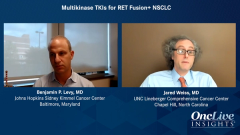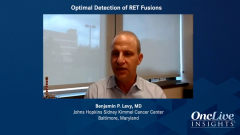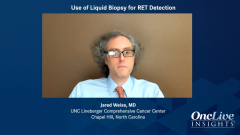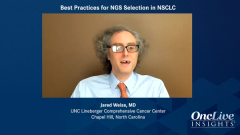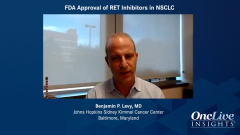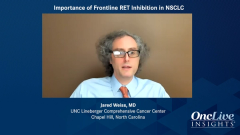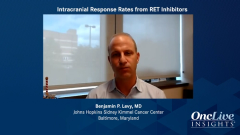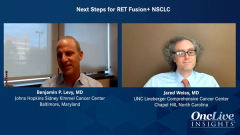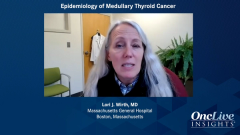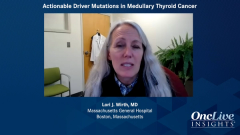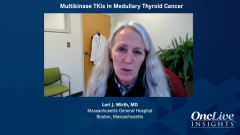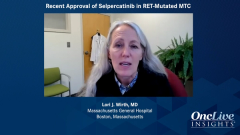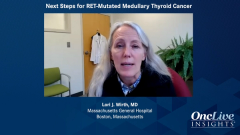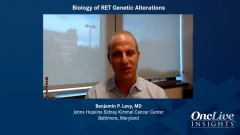
Recent Approval of Selpercatinib in RET-Mutated MTC
Episodes in this series

Lori J. Wirth, MD: The FDA approval of selpercatinib is a landmark approval for patients with RET-driven cancers. It’s not an insignificant number of patients with non–small cell lung cancer that harbor RET fusions, and for those patients that is a significant improvement in treatment options. In patients with medullary thyroid cancer we now have a RET-specific agent that has good activity and a tolerable adverse effect profile overall. While we already do have 2 FDA approved drugs and selpercatinib is not just another FDA-approved drug for patients with medullary thyroid cancer but a new drug that has very good activity and a fairly tolerable adverse effect profile.
LIBRETTO-001 NCT03157128 was a phase 1/2 first in human trial investigating selpercatinib in patients with RET fusion non–small cell lung cancer and then RET-altered thyroid cancers, namely medullary thyroid cancer with RET mutations and then other thyroid cancers with RET fusions. We did see in patients with RET-mutant MTC whether it was germline mutation or a somatic mutation in patients who had been previously treated with either vandetanib and/or cabozantinib there was an overall response rate of 69% in those patients.
When patients were cabozantinib and/or vandetanib naïve, there was an overall response rate in MTC of 73%. Now, we did see good responses across all of the RET mutations that were seen in the patients enrolled including in several patients that did have the gatekeeper resistance mutation at RET V804. We also saw a good duration of response and PFS [progression-free survival] as well in both of the groups, both the previously treated group and the cabozantinib vandetanib–naïve patient population. In the previously treated group the duration of response had not yet been reached at a median follow-up of 14.1 months, and in the cabozantinib- and vandetanib-naïve patients also, again, the duration of response had not yet been reached with a median follow-up of almost 8 months.
In terms of progression-free survival, the medians also had not yet been reached for these patients. For example, in the patients who were previously treated the median progression-free survival had not yet been reached at a median follow-up of 16.7 months. We also saw in this study in the smaller subset of patients with advanced RET fusion thyroid cancer similar response rates, similar durations of response and long PFS—median progression-free survivals as well.
in terms of the tolerability there, of course, there are adverse effects. It’s a cancer drug. Most of the treatment-related adverse events were, however, grade 1 and grade 2. There were some grade 3 and grade 4 treatment-related adverse events. The most common one was hypertension, which was seen in 12% of patients. I’m talking about grade 3 and grade 4. We did see transaminitis as well, grade 3 and grade IV4 in approximately 10% of patients. Diarrhea, grade 3 and grade 4 was seen in 3% of patients. There was a small rate of grade 3 or 4 QTC prolongation in two percent of patients as well.
One of the other markers was tolerability is in the dose reductions. Thirty percent of patients did have dose reductions. However, only 2% of patients had to have dose discontinuation because of treatment-related adverse events.
Transcript Edited for Clarity


